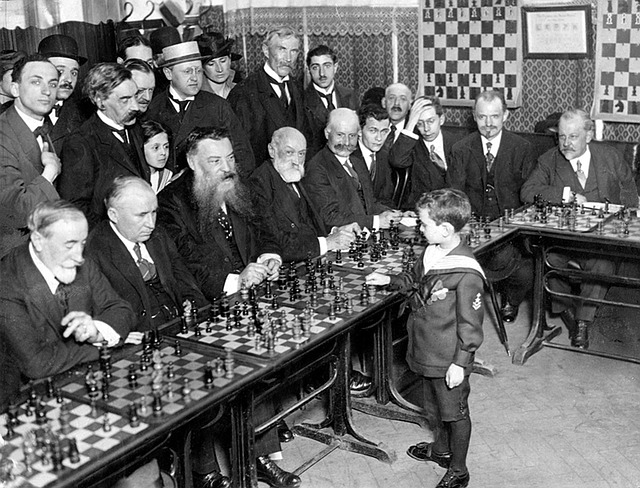The “long game” of self defense

It’s easy to think of self defense as a thing you do in response to a bad guy. After all, that’s what most self defense courses focus on: bad guy appears and you perform the indicated response.
So neat. So tidy. So precise.
And so misleading.
Self defense doesn’t start when the bad guy appears, or when he starts his attack, or when you make the decision to respond in some preplanned way. It actually starts long before he even knows you exist.
Self defense is a “long game”.
Learning from tragedy
By way of explanation, allow me to recount a recent attack in suburban Detroit. (Before I start, I want you to understand that I’m not blaming the victim; the blame rests solely on the attacker. There are things we can learn from this tragic event, however, and that’s where I’d like you to focus.)
The community of Utica, MI has a violent crime rate which is 31% higher than the national average. Its crime rate is substantially higher than all but one of its eight nearest cities. It is, by all the measures I could find, a rough town.
In the midst of all that, one family had something good to celebrate: the birthday of their one-year-old child. They chose what they no doubt thought was a nice, friendly public park to have their birthday party and invited family and friends to join them in their festivities.
Things took a turn for the worse when one of the local junkies decided to shoot up in full view of the partygoers, including the impressionable children. The grandfather of the birthday child approached the druggie and asked him to take his activities somewhere else, at least out of the view of the families gathered.
The man responded by driving a “machete-like” knife into the grandfather’s chest. Repeatedly, as the grandfather lay on the ground pleading for him to stop. The grandfather died on the scene.
What to do?
When this story broke, self defense experts opined on what the grandfather “should have done” in the face of a horrific attack. The gun people focused on carrying a concealed handgun; the martial arts folks were fixated on learning knife disarming techniques. Others suggested that, rather than confront the perpetrator directly, the grandfather should have simply called the police. Still others held that the best course of action would have been to move the party to a different picnic table, away from the drug abuser.
All of those are good tactics in the face of an imminent threat, and one or more could have been used in this case.
No one, however, suggested the long game: not being there in the first place.
Look forward
The long game of self defense is looking ahead and, given the information you have available to you, making some reasonable guesses as to the outcome of your decisions.
John Farnam is famous for his approach to this idea of self defense. He’s fond of saying “don’t do stupid things, hang out with stupid people, or go to stupid places”. That, my friends, is really the essence of the long game in self defense: thinking ahead and considering the risk/benefit of a decision before committing to a specific action.
Applying the lesson
Let’s apply this to the park in Utica. I did some checking and found the park in question sits in one of Utica’s worst neighborhoods. Given how bad the crime rate in Utica is overall, that’s quite a condemnation.
It’s not just Utica that’s in this situation, either. The reality is that public parts, in even “good” cities, are known havens for junkies and drug dealers. In so many areas of our country it’s not safe to be in a public park any time of day, even in a group (sometimes especially in a group.)
What I’m saying is that too many public parks in this day and age probably aren’t a good place for a birthday party of any sort, let alone one’s first. If you’re playing the long game of defense, when you start looking for a place to hold a birthday party you would also think about whether the local park is really the safest place to do so.
It may be that it is, or it may be that it isn’t. The decision itself isn’t really what’s important in this discussion. Instead, I want you to focus on the process of considering the ramifications of the choice. Are you making a good choice, or are you about to pick one of Farnam’s “stupids”?
It’s not all about shooting bad guys
Self defense may start hours, days, weeks, or even months ahead of the event. Thinking about where you’re going, what you’ll be doing, and who you’re going to be with are all part of the long game of self defense.
This kind of defensive thinking is available to anyone, regardless of whether they’ve had any “tactical”, shooting, or martial arts training. It doesn’t need special gear or years of special training; there is no cost to the long game. All it takes is the willingness to think ahead. (That’s also why the defensive training world doesn’t talk about it much — there’s very little monetary upside, because there’s not a whole lot to brand and sell.)
All that other stuff — the “tactical” or “in the moment” response — does have a place, because you can’t predict every outcome with certainty. You can still be surprised, you can be caught off guard by the possibility you didn’t consider. You still need to be able to protect yourself and your loved ones should even the best decision go horribly wrong.
But playing the long game is likely to significantly reduce the chances of your needing to. Remember: you win 100% of the fights you’re not in.
Go long.
– Grant
- Posted by Grant Cunningham
- On September 17, 2018

